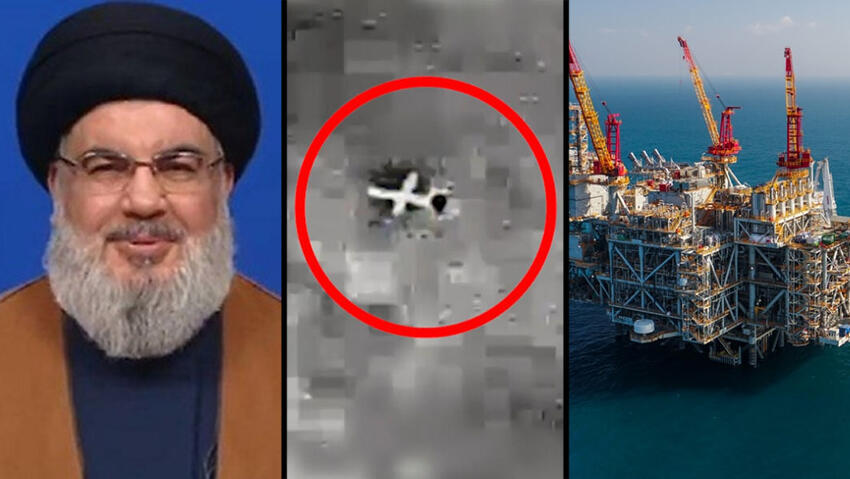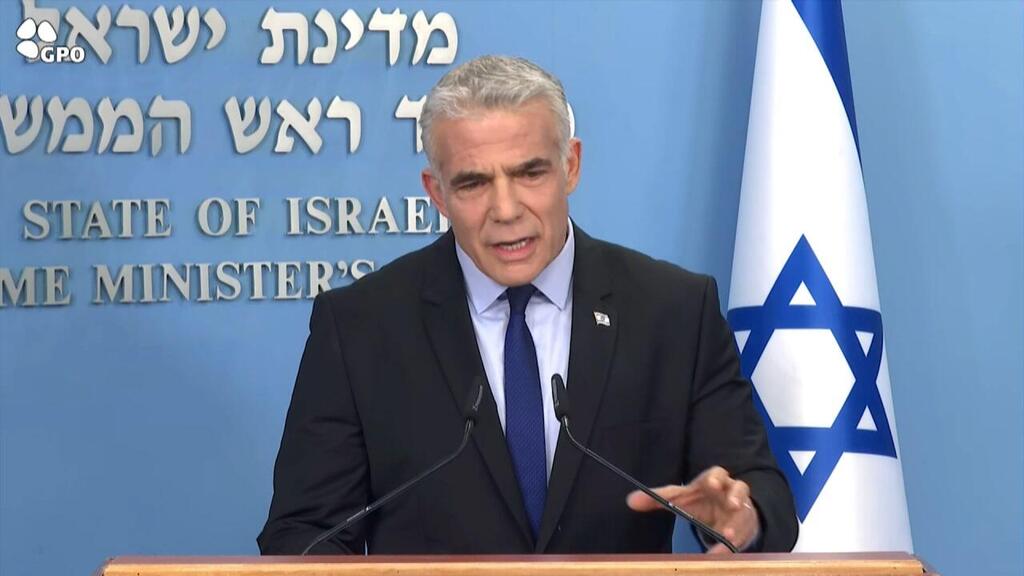The Israeli military intercepted three Hezbollah drones Saturday evening as they were making their way from Lebanon to the Karish gas field, over which the countries have been locked in a protracted maritime border dispute.
According to the IDF, the drones flew at low altitudes and some at low speeds and no sub-explosions were caused after they were shot down by an Israeli Air Force fighter jet and an Israeli Navy corvette, indicating they were not carrying any explosives.
Israel intercepts 3 Hezbollah drones en route to contentious offshore gas field
(Video: IDF Spokesperson's Unit)
Security officials estimate the drones were launched with the aim of undermining the ongoing U.S.-mediated economic water demarcation talks between Jerusalem and Beirut.
Defense Minister Benny Gantz blasted the Iranian-backed proxy after a situation assessment with the IDF top brass.
"The State of Israel is prepared to defend its infrastructure against any and all threats," Gantz said.
"Hezbollah undermines Lebanon's ability to reach an agreement on a maritime border that is vital to Lebanon's economy and its citizens, despite Israel's intentions to advance negotiations to resolve the issue."
2 View gallery


Hezbollah leader Hassan Nasrallah; Karish gas field
(Photo: Albatross, IDF Spokesperson's Unit)
In his first speech since coming into office, Prime Minister Yair Lapid issued a stern warning to Israel's adversaries, saying the Jewish state is ready to defend itself with force.
"I say to all our adversaries, from Gaza to Tehran, from the shores of Lebanon to Syria, do not try us," he told reporters.
"Israel will know how to use its force in the face of every threat and foe."
Last month, Lebanon invited U.S. energy envoy Amos Hochstein to Beirut after objecting to the arrival of a vessel operated by London-based Energean off the coast on June 5 to develop the disputed gas field. Lebanon President Michel Aoun said any activity in the area would amount to an act of aggression and provocation.
Hezbollah has previously warned Israel against drilling for oil and gas in the disputed area until the issue is resolved, and said the group would take action if it did so.
Israel says Karish is part of its exclusive economic zone, but Lebanon says the field is in contested waters and should not be developed until the two countries conclude their indirect talks to delineate their maritime borders.
Those talks fizzled out last year after Lebanon pushed its claim in the disputed zone from a boundary known as "Line 23" further south to "Line 29," adding around 1,400 square km (540 square miles) to its claim, including part of Karish.
To overcome the impasse, Hochstein proposed a field-swap that would create an S-shaped boundary instead of a straight line, but Lebanon did not officially agree to the proposal, official sources said.
Reuters contributed to this story.
First published: 20:53, 07.02.22




